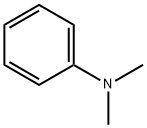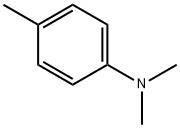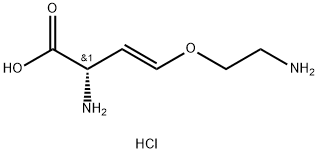4-Chloro-2-methylaniline
Synonym(s):2-Amino-5-chlorotoluene;4-Chloro-o-toluidine
- CAS NO.:95-69-2
- Empirical Formula: C7H8ClN
- Molecular Weight: 141.6
- MDL number: MFCD00007842
- EINECS: 202-441-6
- SAFETY DATA SHEET (SDS)
- Update Date: 2024-12-18 14:15:32

What is 4-Chloro-2-methylaniline?
Chemical properties
clear brown liquid
Chemical properties
The chloromethylanilines are colorless or white crystalline solids or liquids, some have a mild fishy odor.
The Uses of 4-Chloro-2-methylaniline
4-Chloro-2-methylaniline may be used in the synthesis of the following:
- 2,8-dichloro-4,10-dimethyl-6H,12H-5,11-methanodibenzo[b,f]-diazocine via reaction with paraformaldehyde in toluene
- N-allylated derivative via palladium-catalyzed selective monoallylation with allyl alcohol
- N-(4-chloro-2-methylphenyl)benzamide via reaction with benzoyl chloride
The Uses of 4-Chloro-2-methylaniline
Intermediate.
Definition
ChEBI: 4-Chloro-ortho-toluidine is a member of monochlorobenzenes.
General Description
Gray to white solid with a weak fishy odor. Sinks in water. Freezing point is 77°F.
Air & Water Reactions
May be sensitive to prolonged exposure to air and light. Insoluble in water.
Reactivity Profile
4-Chloro-2-methylaniline is incompatible with acids, acid chlorides, acid anhydrides, chloroformates and strong oxidizing agents. . A halogenated amine. Amines are chemical bases. They neutralize acids to form salts plus water. These acid-base reactions are exothermic. The amount of heat that is evolved per mole of amine in a neutralization is largely independent of the strength of the amine as a base. Amines may be incompatible with isocyanates, halogenated organics, peroxides, phenols (acidic), epoxides, anhydrides, and acid halides. Flammable gaseous hydrogen is generated by amines in combination with strong reducing agents, such as hydrides.
Hazard
Toxic by ingestion and inhalation. Probable carcinogen.
Health Hazard
Inhalation, ingestion, or skin contact causes bluish tint in fingernails, lips, and ears. Headache, drowsiness, and nausea also occur. Contact with eyes causes irritation.
Fire Hazard
Special Hazards of Combustion Products: Toxic oxides of nitrogen and hydrochloric acid fumes may form.
Safety Profile
Confirmed carcinogen. Poison by ingestion and subcutaneous routes. Human mutation data reported. In the presence of copperpI) chloride catalyst decomposition occurs above 239'C. When heated to decomposition it emits toxic fumes of Cland NOx. See also other chloro toluidme entries.
Potential Exposure
Most of the isomers are used in dyestuff manufacture. The 3-chloro-para isomer is used to kill birds. It is marketed as pelleted bait for control of bird populations.
Carcinogenicity
p-Chloro-o-toluidine and its hydrochloride salt are reasonably anticipated to be human carcinogens based on limited evidence of carcinogenicity from studies in humans and evidence of carcinogenicity from studies in experimental animals.
Shipping
UN2239 Chlorotoluidines, solid, Hazard Class: 6.1; Labels: 6.1-Poisonous materials. UN3429 Chlorotoluidines, liquid, Hazard Class: 6.1; Labels: 6.1- Poisonous materials
Incompatibilities
Incompatible with oxidizers, strong acids; chloroformates, and acid anhydrides, isocyanates, aldehydes forming fire and explosive hazards.
Properties of 4-Chloro-2-methylaniline
| Melting point: | 24-27 °C (lit.) |
| Boiling point: | 241 °C (lit.) |
| Density | 1.19 g/mL at 25 °C (lit.) |
| refractive index | n |
| Flash point: | 211 °F |
| storage temp. | Keep in dark place,Inert atmosphere,Room temperature |
| Water Solubility | Practically insoluble in water |
| solubility | Chloroform (Slightly), Methanol (Slightly) |
| pka | pK1:3.385(+1) (25°C) |
| form | neat |
| color | White or colorless to Brown |
| BRN | 878505 |
| Stability: | Air Sensitive |
| CAS DataBase Reference | 95-69-2(CAS DataBase Reference) |
| IARC | 2A (Vol. 77, 99) 2010 |
| NIST Chemistry Reference | Benzenamine, 4-chloro-2-methyl-(95-69-2) |
| EPA Substance Registry System | 4-Chloro-2-methylaniline (95-69-2) |
Safety information for 4-Chloro-2-methylaniline
| Signal word | Danger |
| Pictogram(s) |
 Skull and Crossbones Acute Toxicity GHS06  Health Hazard GHS08  Environment GHS09 |
| GHS Hazard Statements |
H341:Germ cell mutagenicity H350:Carcinogenicity H410:Hazardous to the aquatic environment, long-term hazard |
| Precautionary Statement Codes |
P202:Do not handle until all safety precautions have been read and understood. P273:Avoid release to the environment. P280:Wear protective gloves/protective clothing/eye protection/face protection. P301+P310:IF SWALLOWED: Immediately call a POISON CENTER or doctor/physician. |
Computed Descriptors for 4-Chloro-2-methylaniline
4-Chloro-2-methylaniline manufacturer
ALS INDIA LIFE SCIENCES
New Products
(S)-3-Aminobutanenitrile hydrochloride 4-Methylphenylacetic acid N-Boc-D-alaninol N-BOC-D/L-ALANINOL Tert-butyl bis(2-chloroethyl)carbamate 3-Morpholino-1-(4-nitrophenyl)-5,6-dihydropyridin- 2(1H)-one Furan-2,5-Dicarboxylic Acid Tropic acid 1-Bromo-3,5-Di-Tert-Butylbenzene S-2-CHLORO PROPIONIC ACID ETHYL ISOCYANOACETATE 2-Bromo-1,3-Bis(Dimethylamino)Trimethinium Hexafluorophosphate 4-IODO BENZOIC ACID 3-NITRO-2-METHYL ANILINE 1-(2,4-DICHLOROPHENYL) ETHANAMINE (2-Hydroxyphenyl)acetonitrile 4-Bromopyrazole 2-(Cyanocyclohexyl)acetic acid 4-methoxy-3,5-dinitropyridine 1-(4-(aminomethyl)benzyl)urea hydrochloride 2-aminopropyl benzoate hydrochloride diethyl 2-(2-((tertbutoxycarbonyl)amino) ethyl)malonate tert-butyl 4- (ureidomethyl)benzylcarbamate Ethyl-2-chloro((4-methoxyphenyl)hydrazono)acetateRelated products of tetrahydrofuran








You may like
-
 95-69-2 2-Amino-5-chlorotoluene 98%View Details
95-69-2 2-Amino-5-chlorotoluene 98%View Details
95-69-2 -
 4-Chloro-2-methylaniline CAS 95-69-2View Details
4-Chloro-2-methylaniline CAS 95-69-2View Details
95-69-2 -
 4-Chloro-2-methylaniline, 98% CAS 95-69-2View Details
4-Chloro-2-methylaniline, 98% CAS 95-69-2View Details
95-69-2 -
 4-Chloro-2-methylaniline CAS 95-69-2View Details
4-Chloro-2-methylaniline CAS 95-69-2View Details
95-69-2 -
 1975-50-4 98%View Details
1975-50-4 98%View Details
1975-50-4 -
 2-HYDROXY BENZYL ALCOHOL 98%View Details
2-HYDROXY BENZYL ALCOHOL 98%View Details
90-01-7 -
 14714-50-2 (2-Hydroxyphenyl)acetonitrile 98+View Details
14714-50-2 (2-Hydroxyphenyl)acetonitrile 98+View Details
14714-50-2 -
 118753-70-1 98+View Details
118753-70-1 98+View Details
118753-70-1